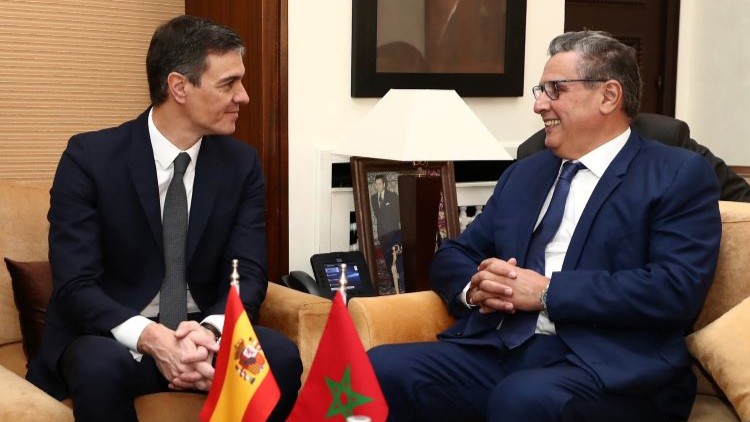The Diplomat
The State Secretary for the EU, Pascual Navarro, assured yesterday that, in the same way that the pandemic has shown that Europe “can move forward and boost the ecological and technological transition”, the Russian aggression against Ukraine has “accelerated the reasons for integration” of the Union.
“The Russian aggression has accelerated the reasons for integration, although financial support and sanctions against the attacker still need to be channeled,” said the State Secretary during the presentation of the report Reforming Europe in times of war, by the Fundación Alternativas and the Madrid office of the Friedrich Ebert Stiftung (FES).
The document addresses the fundamental challenges of internal reinforcement that the Union must face in order to become a true geopolitical actor, after suffering the effects of the pandemic and the war in Ukraine. This ranges from sectoral policies – health, energy, defense, economic union – to institutional reform of the treaties to speed up decision-making. The report’s conclusions, according to the authors, are of “crucial importance for Spain, as the country will assume the rotating presidency of the EU during the second half of 2023.”
According to Navarro, the war in Ukraine is “our main concern”, since it is an “attack” on a country that wants to be “part of the Europe of solidarity”. The Russian aggression, he continued, has “accelerated the reasons for integration” of the EU, including the Strategic Compass, an action plan to strengthen security and defense policy until 2030. However, Navarro qualified that, as far as Ukraine is concerned, “financial support and sanctions against Russia” have yet to be channelled.
In any case, he affirmed, the critical situation in which the EU finds itself due to the war is taking place at a time of “transformations”, after the crises of recent years have given Europe the opportunity to “recognize its shortcomings and seek solutions”. The EU, he continued, is a “living project whose health depends on the will of the governments and citizens who give it democratic support” and the COVID-19 pandemic has shown that the Union “can move forward and promote the ecological and technological transition” in order to “reduce our energy dependence” and make progress in “relations with the Southern Neighborhood and Latin America”.
Also participating in the debate were María Pallares, Program Coordinator of FES Madrid; Diego López Garrido, Executive Vice-President of Fundación Alternativas and Director of the document; Francisco Fonseca, former Director of the Representation of the European Commission Office in Spain; Aurora Moreno, Editor of the International Area of Radio Nacional de España; and María Ángeles Benítez, Director of the Representation of the European Commission in Spain.
The report
According to the report, the current conflict in Ukraine is an “indirect consequence” of a “bad resolution” of the end of the Cold War, which condemned Russia to a “marginal role” in the European security architecture, instead of integrating it into a “common project” encompassing the whole continent. The second mistake was NATO’s “declared intention to host Ukraine and Georgia,” as approved at the Bucharest summit in 2008, although no date was ever given. Therefore, he warns, “Europe will never be secure with a stable perspective, as long as Russia is not integrated into a comprehensive security arrangement acceptable to all parties”, including the EU Eastern Partnership states, including “renewed confidence and arms control measures”, on the basis of “indivisibility of security and respect for the sovereignty of all states”.
Besides, one of the lessons that the EU can draw from this war is that one cannot trust, as Germany did with the gas supply, a country whose regime “is not transparent and democratic”, because establishing strong commercial and economic ties with a country like Russia, which has chosen to sacrifice its economy in favor of its political-military hegemony in the region, “is no guarantee”. Moreover, economic sanctions are not “decisive in defeating the aggressor,” or even in stopping the conflict, at least in the short or medium term, and have “very harsh consequences” for those who impose them. On the other hand, in a conflict posed by the Kremlin as a “pulse” with the US, leader of NATO, and therefore of the West, it is Europe that loses, that “suffers the harshest economic consequences”.
Therefore, the document warns that the EU cannot postpone any longer the goal of “achieving its strategic autonomy”, otherwise it will become the stage on which “other powers will settle their differences”. According to Alternativas, this will be one of the “great priorities” of the next Spanish Presidency of the EU. In addition, the report considers it “essential” to reform the European Union treaties because, in order for the EU to be more effective, it is necessary to overcome the “unanimous decision system”, currently essential for the “approval of new sanctions”, and to deal with security and defense issues. According to Alternativas, the Spanish Presidency will also have to tackle this task through the European Convention.







